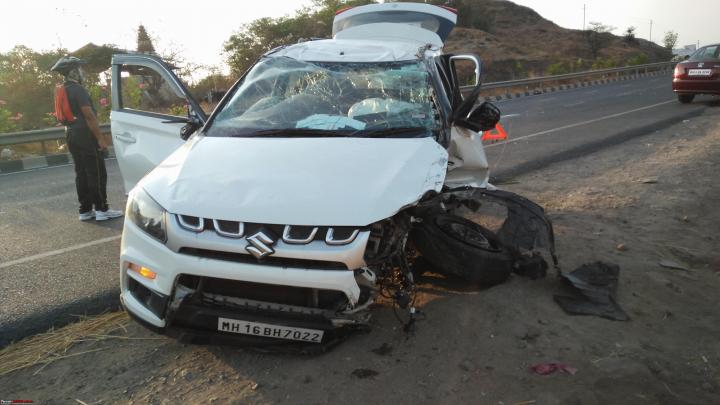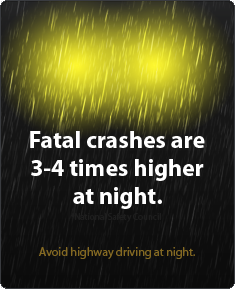News
What are the most common reasons we Indians don't prioritize safety
Someone who has a budget of 5 lakhs and has to buy a new car can't afford a 5-star car even if they wanted one.
BHPian lordrayden recently shared this with other enthusiasts.
It's well known that we Indians (on average) don't prioritize safety as much as those in the US, Europe, Australia, etc. I have heard and read many varying reasons for it and have listed them down (in no particular order) as options in the poll. What do you think is the most COMMON reason(s) why we as a PEOPLE don't prioritize vehicle safety? Please do contribute to the poll and post if you have any thoughts.
I want to stress that the poll is not about YOUR personal views on vehicle safety, but what you think are the most COMMON views of our country as a whole. This would be the opinion you have formed about the average Indian's views by talking to people, reading articles, watching videos, etc. For example, someone who has a budget of 5 lakhs and has to buy a new car can't afford a 5-star car even if they wanted one. But that person could still have the opinion that we Indians don't prioritize safety because of lack of awareness.
Also wanted to point out the obvious that there ARE a lot of people who do prioritize safety, more so on Team-BHP than in the general population, so not taking anything away from them. And thanks to Tata and Mahindra, awareness about safety is on the rise in the last decade. But on average, in India we still don't prioritize vehicle safety.
Here's what GTO had to say on the matter:
Awareness is the main reason. Things are improving due to the public GNCAP results, Tata / Mahindra's track record with 5-star safety cars, an increasing number of articles & discussions around safety, government initiatives etc.
But overall awareness levels are still low and the general apathy toward safety sucks.
Hence, it is the government's job to push safety. Similar to how they pushed for ABS + Airbags + parking sensors + speed warning chimes, now the government needs to make ESP mandatory (as it is in many countries worldwide), and concurrently, cars with safe structures.
Only the government can force this change. Car manufacturers will be happy to sell unsafe cars as long as they can, and take advantage of this situation.
For example, someone who has a budget of 5 lakhs and has to buy a new car can't afford a 5-star car even if they wanted one.
Going the pre-worshipped route is the only way to get a safe car for 5 lakhs. Example, a used VW Polo.
Here's what BHPian SS-Traveller had to say on the matter:
The biggest ACTIVE safety feature of any car is the nut behind the wheel - the driver! Till the time that one can get one's driving license effortlessly and as a matter of right, India's road safety record will never improve. Rigorous training and impartial road testing by skilled examiners for new applicants, with existing DL-holding traffic rule violators being made to undergo such training and testing as well, is the only way to bring down road accident death rates. I'm certain this proposal would be unpalatable to the majority, but airbags don't save lives when the driver doesn't know how to.
Here's what BHPian Axe77 had to say on the matter:
I think more than awareness its our general lack of civic sense, care a damn attitude to rules and regulations (whether its the ability to stand in queues, stop at a red light, wear a helmet, spitting and littering in public).
Its also a relative lack of empathy towards others. We tend to look at immediate personal comfort and convenience over all else. So we'd rather be the first one crossing a point rather than let a pedestrian cross the road for instance.
So many cases in point:
- Why does a motorist have to be "told" that wearing a helmet is safe for him. Holds true even for people who've had a fall - yet they will continue as before.
- The guy who doesn't stop at a red light. He knows breaking it is wrong. Possibly also that breaking it is dangerous to himself and others.
- Trying to beat a pedestrian / other motorist and cut their path to be "first". That's why our driving is stressful. Its not just the traffic volume. Its because everyone is jostling with you in that heavy traffic.
- Why do even educated people have to be told to wear a seat belt. You carefully assessed all the features in the car (including all the seat belts); perhaps even judged it on number of airbags and safety ratings etc. Why not wear that seat belt then.
The list can go on.
Here's what BHPian alpha1 had to say on the matter:
Barring the adolescence (where one naturally feels thrilled to indulge in risky behavior), all the other ages people will take care of their health and lives.
First I wish to make clear that safety comes with prices. And increasing safety means reduced risk of losing life/limb and comes with increasing cost. Therefore there is a natural progression from two wheeler to two wheeler with safety gear to four wheeler to four wheeler with safety gear. You may have increasing layers of safety even within safety gear: seat belts, airbags, electronic controls, roll cage, helmet, body suit etc.
However, each individual looks at his assessment of safety and the means of expending the respective amount.So what is left is awareness angle. Most of the people are not much aware about the risks common stuff at their house pose. How many people know the possibilities and danger potential of LPG cylinder or fuel line catching fire? How many people know about the risks of 220V electricity that is carried via exposed wires to their appliances?
How many people can fathom the injury risks their tools and equipment carry in case of mishap (say slipping while holding a tool in certain way). How many people while walking into a building take care to look above and remind themselves that something may fall from the floors above.
Our driving license dispensing mechanism still leaves a lot to be desired. However I sincerely wish that the least that could be done is to show the videos of real and simulated accidents and have a Q&A on what caused the accident and how it could've been avoided at the final stage of clearing the Driving license. That will make the future drivers aware of the dangers present on the roads.
Here's what BHPian greenhorn had to say on the matter:
My thoughts, based on my experience in other countries.
In India, or for that matter, most developing countries, when the brown stuff hits the fan, it's every man for himself, and you can't rely on the government, courts, or society to have your back. Unlike developed countries where a safety first approach is holistic, with everyone doing their part, that's not the case here. Life in developing countries is inherently more dangerous - wild animals, food poisoning, criminals, poor infrastructure, any number of things can kill you.
The burden of paying for the cost of safety in monetary, time and quality of life terms is very high, and all of this to protect life which is not valued highly in India in the first place. In such a hostile environment, there is a tendency to accept this risk as part of the cost of living there and move on.
You'd have noticed how covid guideline adherence started slipping after a while. People get fatigued, and decide that the price for safety is too burdensome. In India, after all, travel is viewed as either a convenience or a leisure activity, and adding safety to the mix achieves neither.
I think most Indians have considered the price they have to pay for safety first, given our circumstances, and decided that safety third is a more balanced option.
Check out BHPian comments for more insights and information.







.jpg)











